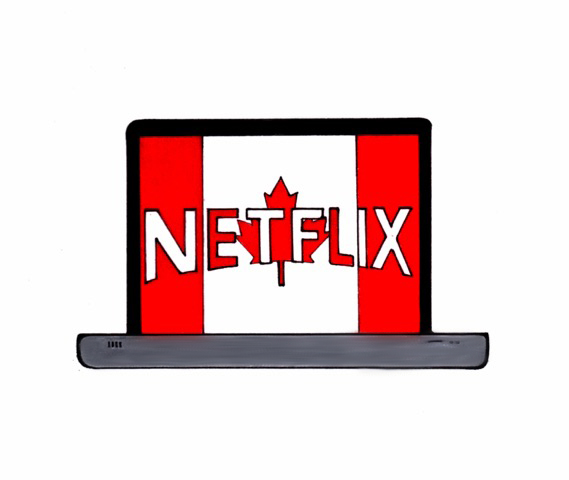On Sept. 28, the federal government announced a partnership with Netflix. The online streaming service agreed to invest $500 million over the next 10 years to create “Canadian content” as part of Justin Trudeau’s cultural strategy, which will in turn pledge $125 million towards promoting Canadian content. Netflix will be creating a Canadian production house. However, “Canadian content” is hard to define, particularly because pop culture in Canada is strongly influenced by the United States, making popular Canadian entertainment often just repackaged American content. This lack of a unique identity makes it unclear what will make the Netflix content distinctively Canadian, beyond a “Made in Canada” label. Thus, the government’s deal seems more like a quid pro quo trade with Netflix to subsidize the Canadian film industry than a way to promote Canadian culture, as Trudeau has claimed.
In Quebec, where there is a strong sense of cultural identity tied to the French language, there have been many Canadian-made French-language shows that have drawn fantastic ratings in the province. Outside of Quebec, however, Canadian content isn’t very popular. In 2017, ratings were very poor for Canadian entertainment: The 50 most-watched network series were all American, the most watched was the National Football League—a staple of American culture. Of the most-watched Canadian-made shows in 2015, several are remakes of American competition shows, and the others—with the exception of The Book of Negroes—lack distinctly Canadian identity. Rookie Blue is just a cop show; Vikings is set in Scandinavia.
Canadian television pop culture doesn’t contribute to the uniqueness of broader Canadian culture or identity. Canada is a relatively small consumer market, so Canadian superstars, like The Weeknd and Drake, have to appeal to the U.S. market to make significant sales and achieve real fame. To make original content to specifically target the Canadian market is risky, since this kind of entertainment rarely goes international, making it less profitable. For example, The Trailer Park Boys never achieved international acclaim. Unless Canadian content becomes a Canadian cultural staple––say, Tragically Hip––it’s hard to sell. It’s easier to make a profit simply repackaging American entertainment.
When Melanie Joly, Canadian Heritage Minister, announced the Netflix deal, she promoted it as support for the Canadian film industry and part of Trudeau’s “culture strategy.” But, it is unclear what exactly Netflix will do to support Canadian culture––nor what is meant by Canadian culture––other than buying Canadian services. So the deal’s benefits for the film industry—and Netflix—appear to be the central goal. There are really only two reasons Netflix would agree to this partnership. After all, Netflix is a for-profit company and must be benefiting somehow. Either the Canadian market is a profitable investment, so Netflix was already going to invest and just got some free press; or the investment isn’t profitable without some sort of subsidy. It remains to be seen what exactly Netflix is receiving for partnering with the government. However, it is noteworthy that a June 2017 parliamentary report recommended a uniform broadband high-speed internet tax to correct for a trade disadvantage faced by Canadian streaming firms competing with Netflix. The disadvantage comes from nuances in how sales taxes are collected in Canada, but ultimately Trudeau dismissed the proposal. In the meantime, Netflix continues to benefit from the trade imbalance.
Trying to analyze the Netflix deal from the perspective of promoting Canadian cultural content is fruitless. Canadian pop culture is, as near as makes no difference, American pop culture, which calls into question what exactly Netflix is going to pass off as Canadian content. Surely the government can think of better ways to promote Canadian culture—like direct sponsorship of public art—than by subsidizing Netflix and the film industry. Hopefully, Trudeau isn't surprised when the Canadian content Netflix makes is strikingly similar to Stranger Things, except you can catch a glimpse of Toronto or Montreal in the background.








